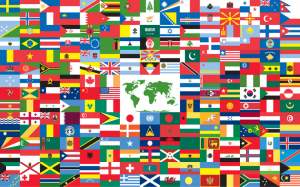It was 7A.M. in Niigata, Japan. I had written down my destination for the day and how long it was going to take. I had planned everything, wrote down all the things I needed, made sure there was plenty of time for all that I wanted to do. There was going to be a major card tournament that I was not going to miss. Despite being a location over 6000 miles away from my home, I was able to find my destination and have a great time. Because of my careful scheduling and planning, it was one of the best days I had in Japan.
Scheduling is the next step of the travel process. Using the list of goals and locations of interest as a guideline for your trip, creating a timetable based on these lists will save lots of time and money.
Location
When there are areas of interest close to one another, this allows for the chaining of activities. For example, Chinatown, Little Italy, Soho, and Saint Mark’s Place are cool locations which are within a reasonable distance from each other. Because these locations are all so close to one another, someone can set up a route between these locations and visit all of them within a few hours. If one were to make a trip to lower Manhattan, they can go to Chinatown to buy some souvenirs, grab lunch at Little Italy, shop for some clothes at Soho and then finish it off with some dessert at Saint Mark’s Place. In this example, creating a route lets planners visit three major tourist destinations while saving a bunch of time due to their distance. Furthermore, it can be advantageous to list down extra routes in case plans backfire. Leaving an area early, road construction, closed locations and such problems can hinder a route. Don’t forget to make sure the neighborhood is safe as well!

A map route created using Google Maps
Look at the Times
Always check down the hours certain locations are opened. Imagine travelling for an hour just to see a closed sign hanging on the door of the museum! A few simple Google searches can provide the times and dates for many locations. Calling a restaurant, museum, store and hosts can save a lot of wasted time. Not only that but the staff can give recommendations to cool events in the area! Finally, it is my advice that plans should be given an extra hour for breathing room time. Sometime it just takes a little longer than an hour to eat lunch.
Travelling with other people
Travelling with friends and other people can create great and lasting memories; however, doing so can also create terrible experience. Different people can have conflicting ideas, personal preferences and conflicting interests can cause a good plan to go bad. While one person might want to check out the ancient castles of Europe, another might want to spend a day on the beach to catch some rays. Despite all this, travelling with many people provides great company, security and can cut costs. Travelling by yourself can get pretty lonely and dangerous in a foreign area. Having friends to lean back on in case of trouble can be worth all the possible drama by itself.

Sometimes it's hard to get along
——————————————————————————
This was written by Gary Chen of Stony Brook University
Follow the Campus Clipper on Twitter and Like us on Facebook!
Interested in more deals for students? Sign up for our bi-weekly newsletter to get the latest in student discounts and promotions and follow our Tumblr and Pinterest. For savings on-the-go, download our printable coupon e-book!
















